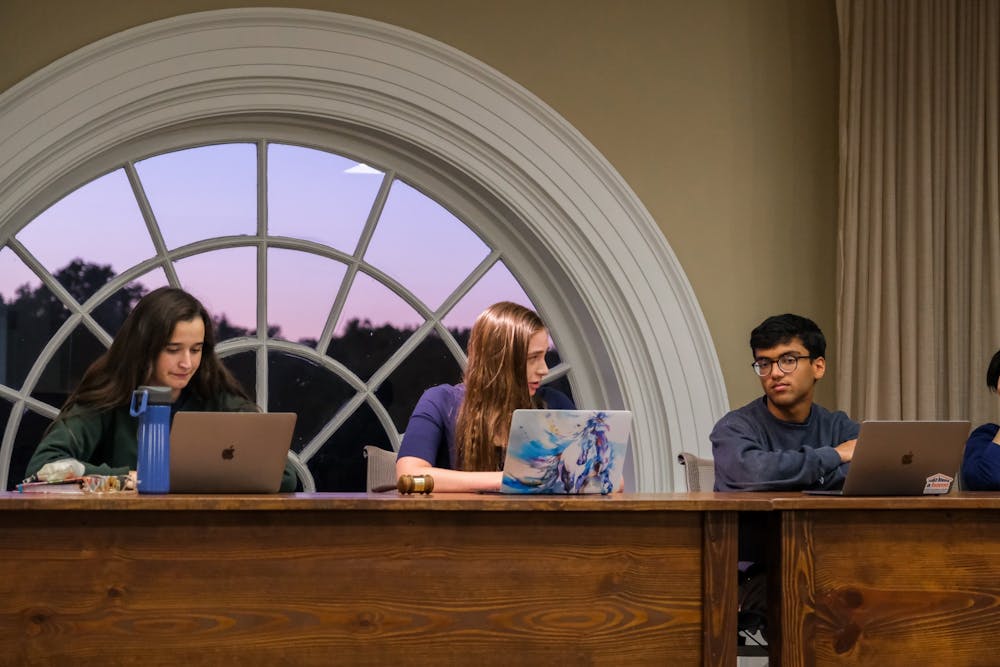A few weeks back, the Honor Committee announced that it would host a constitutional convention to create a multi-sanction system. Delegates sent from CIOs across Grounds would work towards the creation of a constitution that can be voted on by the student body in the upcoming spring elections. While the Committee was set to host the event starting Oct. 17, the chair of the Committee recently decided to push back the convention after hearing concerns about a lack of graduate student representation and whether the group was sufficiently prepared. This convention is good news — however, I urge those involved to use this additional time to reflect on how our racist history contributes to present-day biases. The Committee and the delegates must recognize that honor at the University cannot exist without institutional change. Any constitution put forth by the Committee must allocate resources to help dismantle systemic inequities endemic to the functioning of the University as a whole, in addition to addressing the internal issues facing the Committee.
The importance of this moment should not go unnoticed. While the Honor system was founded in 1842, the first fundamental reform did not occur until last semester, when students voted to reduce the sanction of a guilty offense from expulsion to a two-semester leave of absence. This constitutional convention marks the first time in over 180 years that students and faculty will collectively collaborate to define Honor — this time, for a new generation of students. This effort deserves to be commended. We should also demand that these efforts deliver meaningful change to the generations of students who have yet to enter our University.
Obviously, a new constitution provides the opportunity for the Committee to address some of its internal struggles. The student body should demand to see a few basic things — mechanisms to hold elected representatives accountable for missing meetings, a process for ensuring accused students have access to speedier trials and a system of sanctions focused on rehabilitation. These are non-negotiables. Any proposed constitution that fails to deliver on these items will be incapable of offering students the due process they deserve and will be ineffective in its mission to safeguard our community of trust.
What may be less obvious — but arguably more important — is the need for the Committee to recognize an unavoidable truth. Honor cannot truly exist within the context of an institution that has yet to fully transcend its legacy of white supremacy and institutionalized oppression. Whether it is the continued and unnecessary homage to white supremacists or University leaders who platformed an anti-Black eugenicist, but spoke out against a gay-rights activist — there is plenty of progress to be made. The logical incoherence of an institution claiming to value Honor but implicitly condoning white supremacy was highlighted in a recent column authored by Black students, who questioned how our institution can “purport to value Honor but allow our appointed leaders to abandon integrity.” I think the question can be made even more blunt — how can our institution continue to fail marginalized communities and still claim to be honorable?
To be clear, the trouble here is not solely theoretical. The practical problem of having incompatible philosophies that underpin our institution’s overt commitment to honorable behavior and tacit endorsement of white supremacy manifests itself in the clearly biased reporting statistics we consistently see from the Honor Committee. Its most recent bicentennial report states that “reported student demographics do not mirror U.Va. demographics.” This is an understatement. In the late 80s, Black students were reported to the Committee at a rate eight times higher than their respective share of the student body — this means that 64 percent of Honor reports were made against 7.8 percent of the student population. With more rigorous demographic data readily available, today we know that almost all students of color are over-represented in the Committee’s reporting statistics, while white students remain significantly underrepresented. Multiple sources — including a study of our Honor System conducted by Stanford professors — have attributed this long-standing issue to spotlighting, the phenomenon by which students of color are inadvertently singled out because they are noticeably different from the rest of their peers. Unfortunately, this remains a pertinent issue because Black students are still less than 7 percent of the student body despite Black Virginians making up 20 percent of the Commonwealth. The issue of spotlighting underscores the way in which the University’s commitment to Honor is inherently harmful in the wake of its failure to fully address its institutional shortcomings.
To put it plainly, Honor can’t really exist at the University without larger institutional change — the ghosts of white supremacy still haunt the community of trust in ways that we cannot ignore. In light of this reality, the Committee should commit some of its extremely outsized endowment toward advancing institutional reform on — and even beyond — Grounds. This may look like donating to marginalized student groups, educating the community on the effects of spotlighting or lobbying for a more diverse student body. While the upcoming constitutional convention is certainly an opportunity for the Honor Committee to deliver on the specific Honor-related action items the student body has been asking for — such as a multi-sanction system — these are low-hanging fruit. If the Committee truly cares about Honor at the University, then it must begin fighting to radically change the context in which we all live and learn.
Nathan Onibudo is an Opinion Columnist who writes about administration and student self-governance for The Cavalier Daily. He can be reached at opinion@cavalierdaily.com.
The opinions expressed in this column are not necessarily those of The Cavalier Daily. Columns represent the views of the authors alone.







